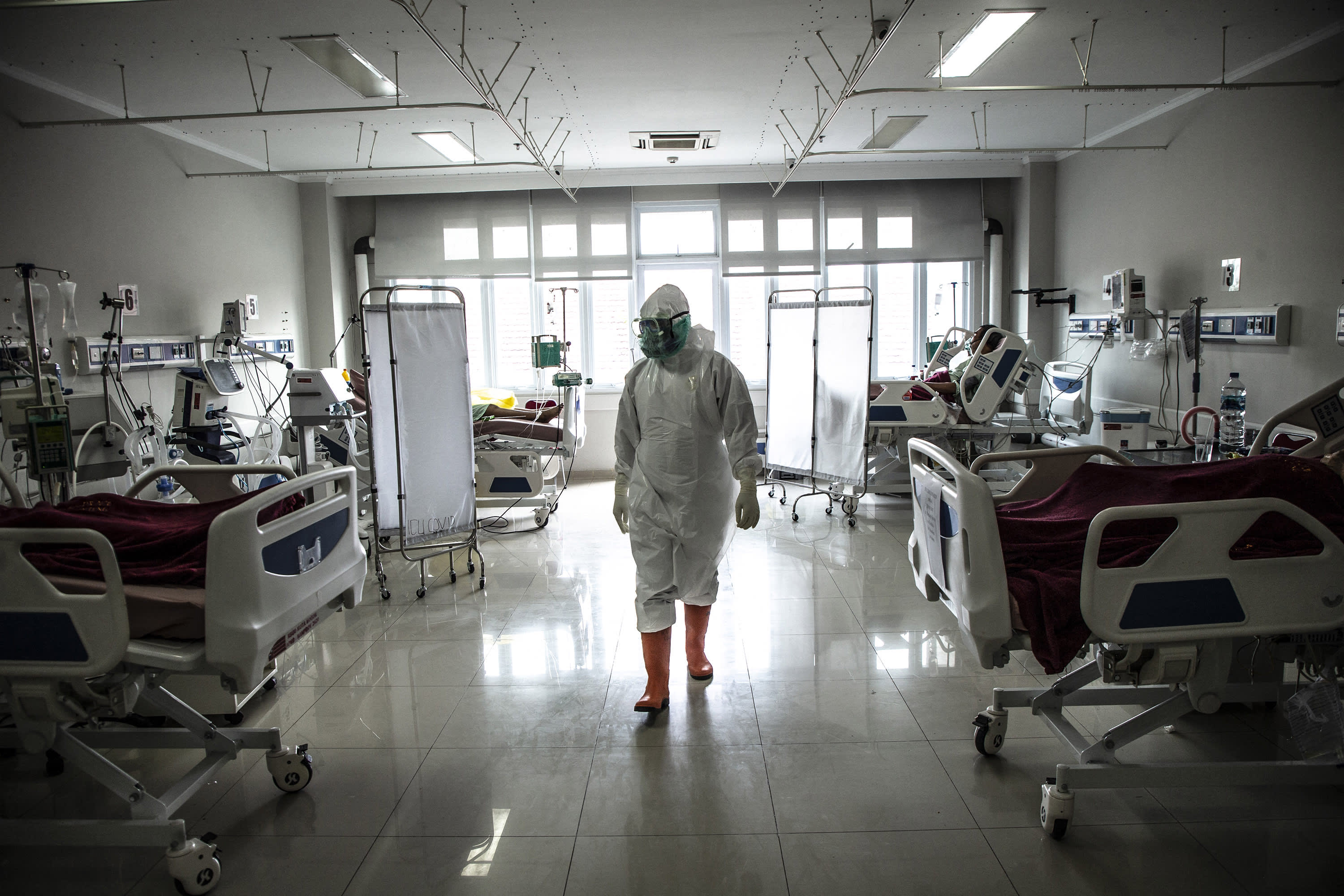Medical workers in Indonesia are grappling with the pressure of caring for Covid-19 patients while quickly vaccinating the country’s residents as infections increase, according to a global health and humanitarian relief organization.
“Health care workers in Indonesia are struggling with a double burden,” said Edhie Rahmat, executive director for Indonesia at Project HOPE, short for Health Opportunities for People Everywhere.
First, they have to take care of both Covid patients and patients with other diseases. Second, they are “under pressure to rapidly cover a high number of populations that need to be vaccinated,” he told CNBC in an email.
Total infections crossed the 2 million threshold on Monday, according to data compiled by Johns Hopkins University. More than 55,594 people have died of Covid-19 in Indonesia. Meanwhile, around 8.9% of Indonesia’s population has received at least one dose of a Covid vaccine, and 4.6% of the country is fully vaccinated, according to Our World in Data.
The longer the pandemic lasts and the higher the caseload builds, (it) will impact their workload and make them vulnerable to transmission and infection.Edhie RahmatExecutive director for Indonesia at Project HOPE
“The longer the pandemic lasts and the higher the caseload builds, will impact their workload and make them vulnerable to transmission and infection,” he said, noting that there are limited beds in intensive care units and a lack of good quality personal protective equipment in the country.
Nearly 980 health-care staff have died from Covid-19, according to data from LaporCovid-19.
Medical workers are also at risk of developing mental health problems such as anxiety, depression and post-traumatic stress disorder, Rahmat said.
“Most health care workers in Indonesia do not have the experience to deal with long-term crisis situations like this,” Project HOPE’s emergency response specialist for Southeast Asia, Yogi Mahendra, said in a statement.
Increase in cases
Indonesia’s coronavirus cases have spiked in recent weeks following the Eid holiday in May.
“Most Indonesians, regardless of their religion, enjoy this gathering and celebrate with lots of food, handshaking and talking,” said Rahmat.
Authorities announced tighter restrictions in 29 infection hot spots this week, in a bid to contain the spread of the virus, Reuters reported.
In these so-called “red zones,” religious activities at places of worship have been suspended, while restaurants, cafes and malls can only operate at 25% capacity, Reuters said.
The country’s most populous island, Java, has been hit hardest by the second wave, Rahmat said.
He also noted that some vaccinated health-care workers have come down with Covid-19, pointing to a report from an official in the district of Kudus, who said 350 such cases have been detected.
“We also received a report of a midwife dying in the district next to Kudus and two doctors died in the same period in different districts,” he said.
Even if medical workers have mild symptoms, they need to be isolated for 10 days and cannot work in the hospitals at a time when cases are “rocketing,” he added.
“This is a serious issue and may ruin the health system,” said Rahmat.
